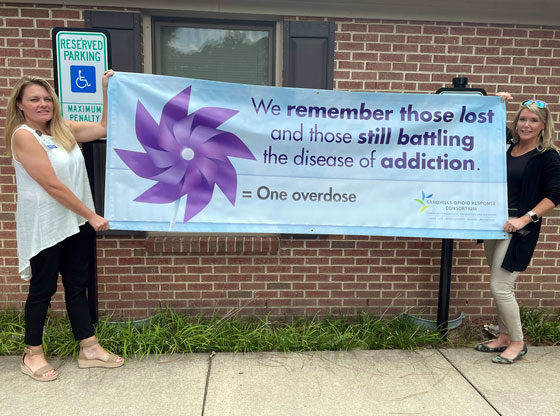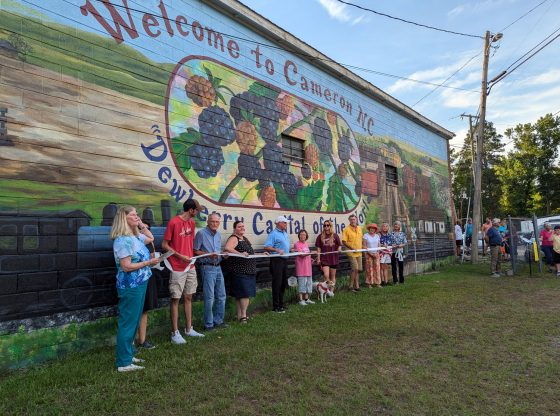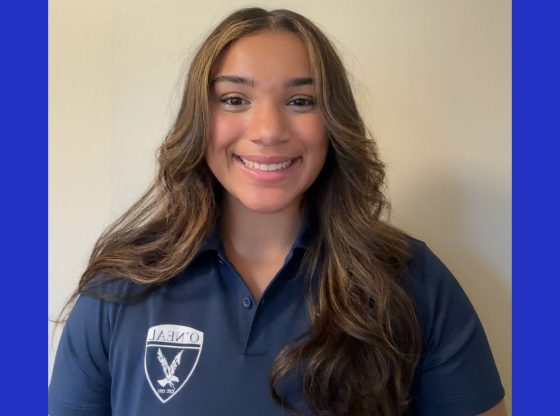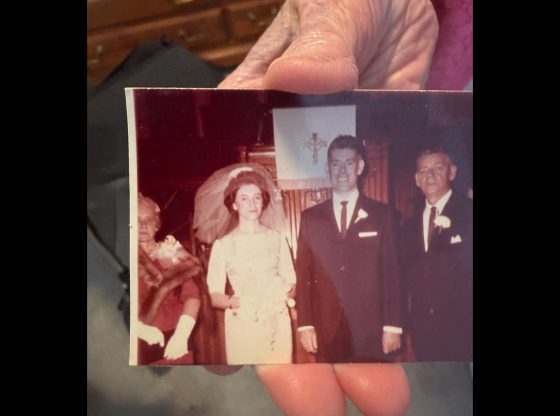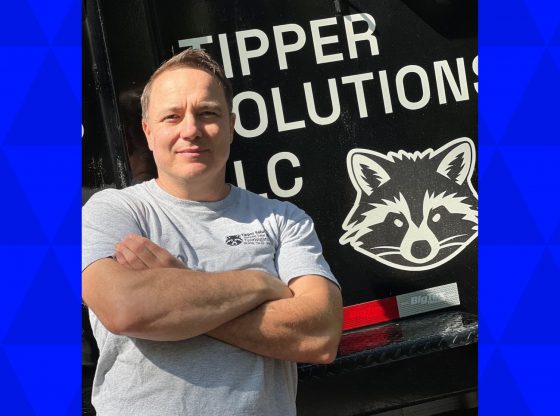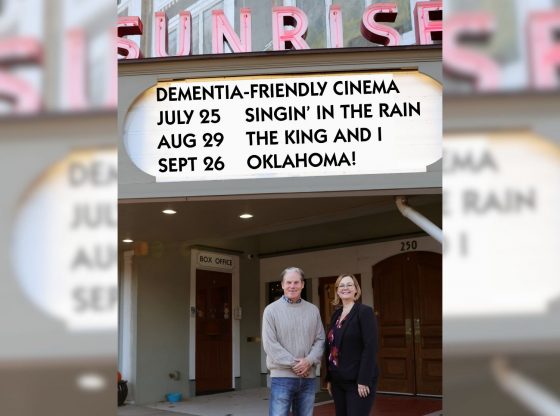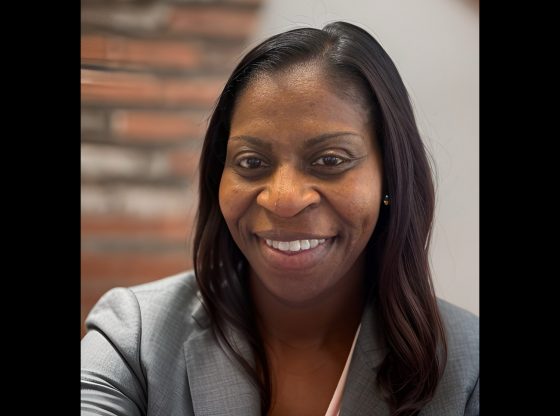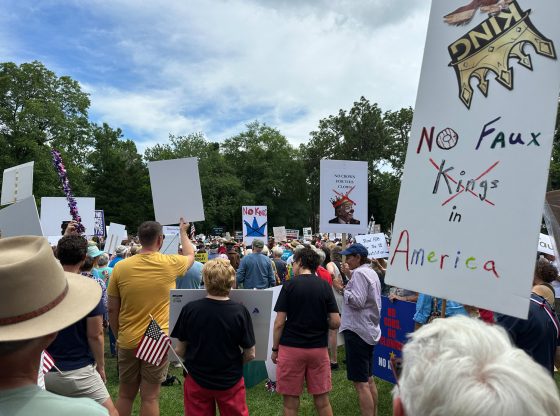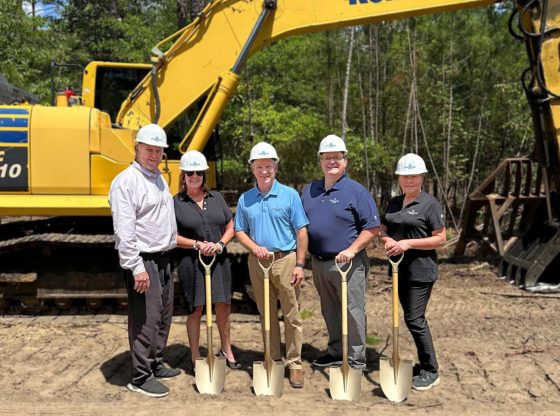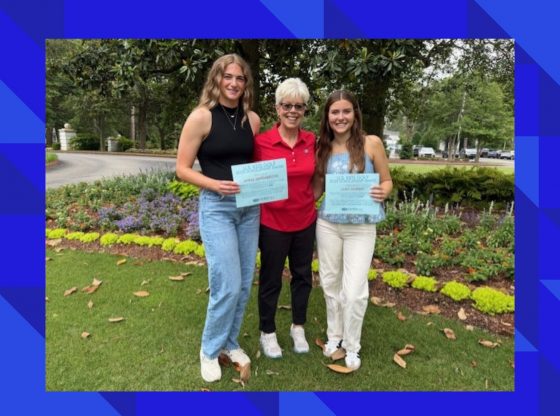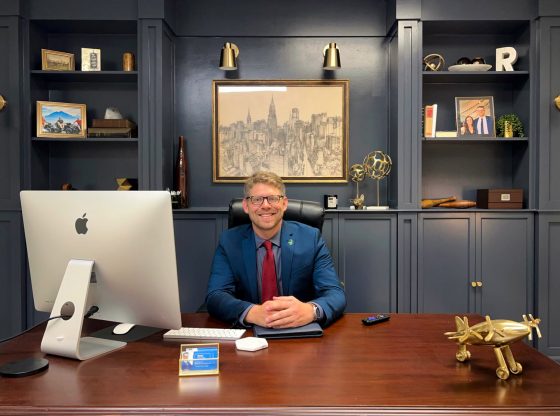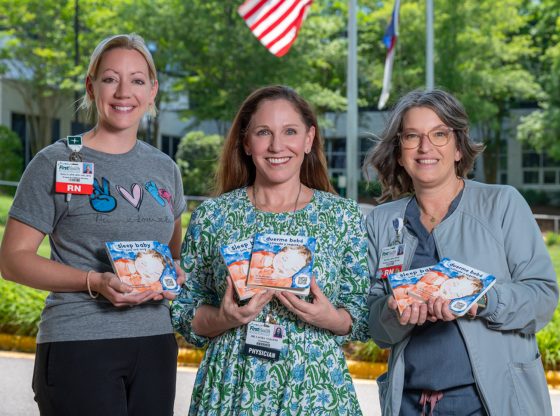More than 900 purple pinwheels will be spinning in Hoke, Moore, Montgomery, Richmond and Lee counties on August 31 as the Sandhills Opioid Response Consortium (SORC) commemorates International Overdose Awareness Day. The event is the world’s largest annual campaign to end drug overdose, remember without stigma those who have died and acknowledge the grief of the family and friends left behind.
One purple pinwheel will be displayed for each of the 949 people in the region who suffered a drug overdose in 2020, as reported by each county’s Emergency Management Services.
“Just as pinwheels are always in motion, those in substance addiction and recovery are constantly moving and changing,” said Stephanie Hoover, a SORC recovery coach and Peer Support Services coordinator. “We hope our visual displays raise awareness of the disease and encourage people to seek help.” Purple is the designated color for overdose awareness.
Pinwheel sites and the number of people being commemorated include:
Hoke County — 142 overdoses
Tia Hart Recovery Center, 116 E Elwood Ave, Raeford
Lee County — 201 overdoses
Lee County Sherriff’s Office, 1401 Elm St, Sanford
Lee County Health Department, 106 Hillcrest Dr., Sanford
Moore County — 288 overdoses
Drug Free Moore County Recovery Center, 105 E. Barrett St., Carthage
Montgomery County — 151 overdoses
Montgomery County EMS Base, 199 South Liberty St. Troy
Richmond County — 167 overdoses
FirstHealth Richmond EMS, 125 Sunset Ave, Ellerbe
Richmond County Health Department, 127 Caroline St, Rockingham
Visitors can stop and pause at the commemorative sites as they feel necessary. Sites will also have overdose awareness information and resources available during operating hours.
Hoover encourages site visitors to take a photo and tag Sandhills Opioid Response Consortium on Facebook. The International Overdose Awareness Day social media hashtag is #endoverdose.
The Centers for Disease Control report that almost 841,000 people have died in the United States since 1999 from a drug overdose. More than 70 percent of those deaths involved opioids, drugs designed to reduce pain but are exceptionally addictive and deadly when taken in high doses or with other drugs.
“When someone has overdosed, getting emergency help right away can mean life or death,” said Roxanne Elliott, policy director at FirstHealth of the Carolinas Community Services. Signs and symptoms of a drug overdose depend on the type of drug used. Signs of opioid overdose include:
No response to stimuli
Shallow/stopped breathing
Can’t be woken up
Unusual snoring/gurgling sounds
Blue/grey lips or fingertips
Floppy arms and legs
An easy way to remember how to check for vital signs is “A, B, C,” specifically:
A — Alert: Not responding to your voice?
B — Breathing: Noisy? Shallow? Slow? Stopped? Strange snoring?
C — Color: For light-skinned people, blue or pale lips or fingertips? For dark-skinned people, grayish or ashen lips and skin color?
If you see any of these signs, call 911 right away.
How to help a loved one battling drug addiction
“Addiction is a disease that doesn’t care who you are or where you came from,” said Hoover, whose 22-year-son Alex died of an opioid overdose in 2017.
“We want everyone to know that recovery is possible, and we are here to help,” Elliott said. “The trained professionals in the Sandhills Opioid Response Consortium meet people where they are in their disease and work with them through treatment, recovery and harm reduction.”
The Sandhills Opioid Response Consortium website at www.firsthealth.org/recoveryresources is a one-stop resource for those seeking to prevent, recover from or gain greater awareness of substance- and opioid-use disorder. The website provides a comprehensive list of all organizations offering help, including facilities offering medicated-assisted treatment to combat dependence on opioids such as heroin and prescription pain relievers containing opiates.
The website also offers a way to connect with Peer Support Specialists, Sandhills-area residents living in recovery of substance- and opioid-use disorder and provide support to those seeking it. A series of podcasts explores the opioid crisis through personal stories and interviews with individuals, families and community members. Caregivers of someone living in active addiction can find support and help in creating caregiver action plan with a caregiver navigator.
Also, people suffering from drug addiction or their friends and family can call the SORC rapid response hotline at (910) 469-1499.
About the Sandhills Opioid Response Consortium
Driven by a shared goal that “all pathways will lead to freedom and survival from opioid addiction and dependence in the Sandhills region,” the SORC is a partnership of more than 25 health and human services organizations in Hoke, Lee, Montgomery, Moore and Richmond counties.
Funded in part by a grant from the U.S. Health Resources & Services Administration, SORC partners work each day to implement activities to address opioid and substance use disorder prevention, treatment and recovery.
Visit www.firsthealth.org/recoveryresources for additional information and details on how to help yourself or others.
Feature photo: Crystal Weatherly, peer support specialist and Stephanie Hoover, SORC recovery coach and peer support services coordinator. Courtesy photo.
Contributed.


